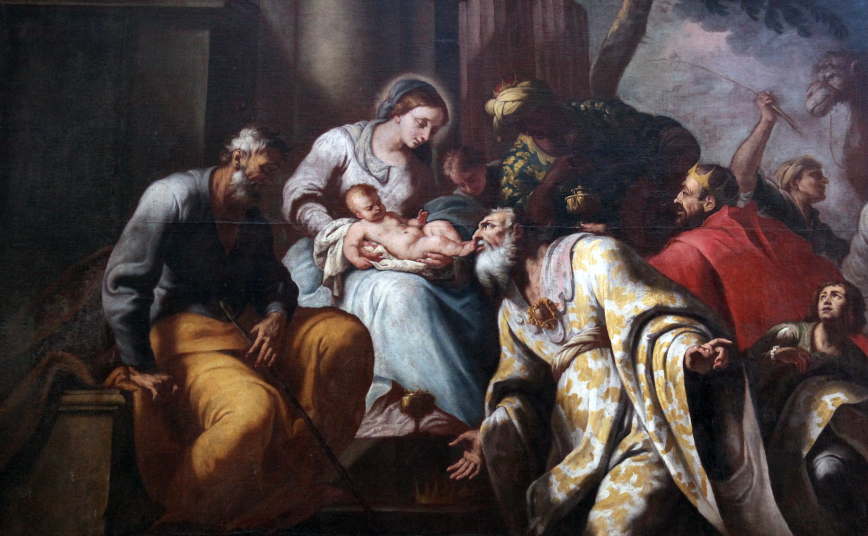Skip to main content
Watch a quick tutorial for the new Catholic.com
The Reunion of All Christians
Join us for the 2017 Catholic Answers Conference Sept 28-30 in San Diego, CA
Was Mary Free from Labor Pain?
 Tim Staples
Tim Staples
May 02, 2017
SHARE

But more to the point, what evidence do we have for this belief? We can examine it from two sources: Scripture and the teaching of the Catholic Church as it is communicated to the faithful through both magisterial teaching and in the liturgy.
Sacred Scripture
Isaiah 66
In a chapter laden with references to the coming of the New Covenant, or “the new heavens and the new earth” as we see in Isaiah 66:22—a text referenced in Revelation 21:1—we find this startling prophecy:
Listen, an uproar from the city! A voice from the temple! The voice of the Lord, rendering recompense to his enemies! Before she was in labor she gave birth; before her pain came upon her she was delivered of a son. Who has heard such a thing? Who has seen such things?
Not only do we find many of the Fathers of the Church referencing this text as referring to the miraculous birthing of Christ, we find it difficult to apply it in its fullest sense to anything else.
Luke 2:7:
And she brought forth her firstborn son, and wrapped him in swaddling clothes, and laid him in a manger; because there was no room for them in the inn.
Some critics will say the fact that Mary “brought forth” Jesus would mean she experienced labor pains. Not necessarily. The teaching that claims Mary was freed from labor pains would agree Mary brought forth Jesus but miraculously aided by God. There would be no reason not to use the language of Mary having brought forth Jesus.
According to St. Thomas Aquinas (who references St. Jerome), Mary being depicted as “wrapping” and then “laying” Christ in a manger is an indicator that she did not endure the normal pains of labor. Even in our day, doctors or nurses would do this kind of work. In the first century, it would be a midwife. Yet the Bible seems to indicate Mary did this by herself.
Magisterial Teaching
Though this teaching has never been the object of a formal definition of the Church and therefore is not infallible, the Catechism of the Council of Trent gives perhaps the clearest example of the general understanding of the Church through centuries past:
But as the Conception itself transcends the order of nature, so also the birth of our Lord . . . just as the rays of the sun penetrate without breaking or injuring in the least the solid substance of glass, so after a like but more exalted manner did Jesus Christ come forth from his mother’s womb without injury to her maternal virginity.
From Eve we are born children of wrath; from Mary we have received Jesus Christ. . . . To Eve it was said: In sorrow shalt thou bring forth children. Mary was exempt from this law, for preserving her virginal integrity inviolate she brought forth Jesus . . . without experiencing, as we have already said, any sense of pain.
It seems fitting: Eve’s sin is causally linked to labor pain. The New Eve was uniquely free from the sin of Eve and did not experience that pain. Indeed, I argue it would seem contrary to our sense of Jesus and Mary as the “New Adam” and the “New Eve.” And, as I said above, it would not seem right to inaugurate this great and glorious New Covenant by experiencing pains that were the result of failure in the Old.
Pope Alexander III (1169):
[Mary] indeed conceived without shame, gave birth without pain, and went hence without corruption, according to the word of the angel, or rather (the word) of God through the angel, so that she should be proved to be full, not merely half filled, with grace and (so that) God her Son should faithfully fulfill the ancient commandment that he had formerly given, namely, to treat one’s father and mother with honor.
The Liturgical Tradition
The Church at prayer, both East and West, reveals a common understanding of Mary having been freed from labor pains. In the Mass of “Mary at the Foot of the Cross II,” celebrated in the Latin Rite before the 1969 reform of the liturgy, the Church prayed:
In your divine wisdom, you planned the redemption of the human race, and decreed that the new Eve should stand by the cross of the new Adam: as she became his mother by the power of the Holy Spirit, so, by a new gift of your love, she was to be a partner in his passion, and she who had given him birth without the pains of childbirth was to endure the greatest of pains in bringing forth to new life the family of your Church.
And also in the Byzantine liturgy, from the Feast of the Nativity of our Lord God and Savior, Jesus Christ and from the Synaxis of the Theotokos, Tone 2:
Behold! The Image of the Father and his unchangeable eternity has taken the form of a servant. Without suffering he has come forth to us from an all-pure Virgin, and yet he has remained unchanged. He is true God as he was before, and he has taken on himself what he had not been, becoming man out of his love for all. Therefore, let us raise our voices in hymns, singing: O God, born of the Virgin, have mercy on us.
The liturgy of the Church has always been an exemplary tool of catechetics and moral certitude theologically as well as the primary instrument of our spiritual nourishment in Christ. Thus, the fact that the Church asks its children to affirm Mary’s freedom from the pains of labor in liturgical prayer at Mass is a testimony as to the authority of this teaching of the Church.
For more on this, check out my book,
Behold Your Mother: A Biblical and Historical Defense of the Marian Doc


 Tim Staples
Tim Staples

